“I’m not a horrible person but I have scars.”
The fact that Sophie Simpson was made to feel that she had to defend the scar she sustained after a car accident is a sad indictment on the kind of world we live in today.
“I think there’s still a lot of judgement; I can’t speak for other conditions but scars can be construed as violence,” says Sophie, from Unst in the Shetland Isles.
It’s stories like Sophie’s which is the reason the UK charity Changing Faces exists.
Together with providing life-changing mental health, wellbeing and skin camouflage services, the charity is also fighting to transform the understanding and acceptance of visible difference, and campaigns to reduce prejudice and discrimination.
Today three of the charity’s inspirational north and north-east ambassadors share their stories in their fight to reduce prejudice and discrimination against people with visible differences.
Rhona Christie
After years of bullying for her appearance, stepping out on stage in front of 1,500 of the world’s best cleft lip surgeons and singing A Red, Red Rose by Robert Burns was an incredibly empowering moment for Rhona Christie.
“I’ve not seen many singers with clefts because I think you might assume that it’s not possible, but it is,” says Rhona, who performed at the 14th International Congress of Cleft Lip, Palate & Related Craniofacial Anomalies in Edinburgh recently.
“I felt incredible to proudly say I’m a singer with a cleft and to give something back to the surgeons who’ve helped me over the years.”
Watch Rhona’s performance at the International Congress of Cleft Lip, Palate & Related Craniofacial Anomalies
Negative reactions
Happy-go-lucky, confident and with an infectiously positive zest for life, the only negativity in Rhona’s life came from other people’s reactions towards her appearance.
Born with a cleft lip and palate, a gap or split in the upper lip or roof of the mouth (palate), Rhona, who is from Banff but now lives in Aberdeen, underwent eight operations while growing up to repair different parts of her mouth.
“I was born with a cleft lip and palate which is a congenital condition so it’s a malformation of your facial structure when you’re still in the womb,” says Rhona.
“It usually requires several corrective surgeries to fix it and that usually leaves an impact on your appearance, so that varies in extent and mine was quite severe, particularly my lips, my jaw and my nose which are quite different to how most people’s are.”
Bullying and abuse
Despite this, Rhona, who is very close to her family, has grown up to be happy and confident with her appearance.
Not only is she a trained classical soprano singer – which is very rare for someone with a cleft lip – but she’s also doing a research PhD at Aberdeen University, studying the effect of hormones on bladder cancer.
Yet she admits that at times, it was hard to deal with the bullying and abuse that she gets because of her appearance.
“It was the impact of other people’s reactions to me that was more of an issue for me growing up,” says Rhona.
“I was bullied when I was at school; I had quite a rough time with other people teasing me and it was always directed at my appearance, which was a lot to deal with when you’re a young girl.
“I was quite confident as a person but it was always other people’s reactions to my appearance that would knock that and made me quite upset.”
‘I feel more positive about myself’
Turning her negative experience into a positive one, Rhona is now an ambassador for the charity Changing Faces.
“Joining a group of people who were talking about similar issues I was facing with their visible differences was really empowering for me because we were all advocating for ourselves,” says Rhona.
“I think that up until that point I had learned to live with some of the negative treatment I had got so I didn’t have a lot of positive feelings about my appearance.
“But that has completely changed since joining Changing Faces.
“I feel a lot more positive about myself and it’s not only about focusing on negative experiences in my past, it’s about trying to change them for other people and move on.”
Shannon MacDonald-McLeod
“How did you get your black eye, did someone hit you?”
That is just one of the many ignorant questions Shannon MacDonald-McLeod from Brora has had to deal with from strangers over the years.
Every time you see a baddie on TV or in film, they’ve always got a visible difference, why?”
Born with a port wine stain birthmark on the left side of her face, Shannon is regularly judged on her natural appearance.
“People pay thousands of pounds to make themselves look different with tattoos, piercings and hair dye but I look different naturally yet I’m judged for it,” says Shannon, 30.
“Just because I look different, it doesn’t make me any different to the person standing next to me.”
Growing up in Brora, Shannon didn’t particularly notice her birthmark during her early childhood.
“My mum always told me that I had a birthmark, she never covered it up,” says Shannon.
“She always said to me you might look different but you’re no different so get out there and show people that you’re not – she always made me feel positive about it.”
Bullied at high school
Everything changed though when she started high school.
“I struggled to find myself in high school,” says Shannon.
“I hated looking different in high school, I wanted to look perfect like the girls I went to school with.
“In reality, they had their own issues but at the time I thought, why can’t I look like them, why can’t my biggest issue be what colour of eye shadow I’m going to wear.”
It wasn’t until after school, while working in a bakery, that Shannon’s confidence started to grow again.
But the real game changer was when, in her twenties, she discovered the charity Changing Faces.
“Growing up, I never knew anyone with a visible difference so it was quite a lonely experience as nobody truly does understand what you’re going through,” says Shannon.
“But the charity made me realise that I wasn’t alone and that although everyone’s story is slightly different, I could talk to someone who could understand how I felt.”
‘There’s still a long way to go’
Accepting her birthmark and learning how to embrace it hasn’t been an easy journey for Shannon.
“I still have my bad days, but those days push me even more to help others,” says Shannon.
Now a campaigner for the charity, Shannon is determined to change the narrative.
“There’s still a long way to go,” says Shannon.
“Every time you see a baddie on TV or in film, they’ve always got a visible difference, why?
“Just because you’ve got a visible difference doesn’t make you a bad person.
“They need to start showing people with visible differences as the good ones.”
Sophie Simpson
Waking up as the car was spinning out of control, the next memory Sophie Simpson has is being pulled out of the vehicle by paramedics.
In just a matter of seconds, life changed forever for Sophie.
Over 9,000 miles away from her loved ones in Unst – one of the North Isles of the Shetland Islands – the 24-year-old tried to make sense of how her once-in-a-lifetime solo trip to Australia ended up with her lying in a hospital bed.
“I had been working in Brisbane for a charity and as part of that, me and a group of girls were sent on a work trip to another city,” says Sophie.
“Due to a detour we ended up driving late into the night and the girl who had been driving had tried to look at the sat-nav but as she did, she lost control of the car and it spun round and round.
“I was asleep in the back and my side of the car hit a pole, so my head hit off the window and it smashed.
“I can’t actually remember the accident itself but I feel like I kind of woke up with the car spinning a little bit but I don’t remember anything until the paramedics pulled me out the car.”
Emergency surgery
Rushed into A&E, Sophie spent four days at Bundaberg Hospital in Queensland where she underwent surgery.
“I can’t remember much about being in A&E but I had to get an operation to take the glass out of my face,” says Sophie.
“I also had a little hairline fracture on my forehead, a mini haemorrhage and my eyebrow had come clean off; there was only a little bit on the end left.
“I also had two black eyes – it wasn’t pretty.”
Thousands of miles away from home, Sophie was on her own as she tried to come to terms with the lasting impact of what had happened.
“I have a scar on my forehead which goes through my left eyebrow and nearly on to my eyelid – it’s just where my hairline is and all the way down my forehead and through my eyebrow,” says Sophie.
“There’s a bit that’s a bit dented – it’s not smooth, it’s lumpy.”
After the accident, Sophie miraculously found the strength to continue travelling but found people’s ignorant reactions to her injuries upsetting.
“I remember I was on the beach one day and this couple asked me ‘what happened to your face, were you drunk and fell off a table,'” says Sophie.
“It made me even more self-conscious because I couldn’t hide it because it was on my face.”
Nasty comments
Returning to her home in Unst, Sophie began to process what had happened, but one nasty comment left her reeling.
“I got a really bad comment from someone and it bowled me over,” says Sophie.
“It took me right back to where I was so I got counselling here in Shetland which was really good and really effective.”
Over the years, Sophie has worked hard to accept her scar, and, importantly, accept that it wasn’t going anywhere.
With her newfound confidence, Sophie was keen to help others, so when she came across the charity Changing Faces she knew it was her calling.
“It was actually only last year that I came across Changing Faces,” says Sophie.
“I’d worked through all the trauma and I felt more confident to the point where I felt I wanted to help other people.
“I wanted to share my story and help others that are feeling the same.”
Fighting for change
As a campaigner for the charity, Sophie works tirelessly to raise awareness of visible differences as she feels like there is still a long way to go.
“I think there’s still a lot of judgement. I can’t speak for other conditions but scars can be construed as violence.
“Whatever happened it’s a scar and it’s a traumatic experience whichever way you get a scar.”
One of the Changing Faces campaigns that Sophie backed was the I Am Not Your Villain campaign which calls on the film industry to stop using scars, burns, marks and any other visible difference to represent villainy.
“The campaign talks about how villains usually have scarred faces and are ugly and have all these things wrong with them and that’s completely not the narrative that we should be going for,” says Sophie.
“I’m not a horrible person but I have scars.
“It would be good to see villains in films and TV without visible differences.”
Justnya Kruczynska, skin camouflage practitioner
Seeing the moment when someone feels more confident is always an emotional one for Justyna Kruczynska.
Together with her work as a principal maxillofacial prosthetist at Aberdeen Royal Infirmary, Justyna is also a skin camouflage practitioner at a special clinic in Aberdeen.
The free monthly clinic, a pioneering partnership between Changing Faces and the north-east charity Clan Cancer Support, helps people to camouflage their visible differences.
“I see people come in who are quite shy and quite self-conscious, but by the end of the appointment they’re very happy,” says Justyna.
“Some people are also quite emotional as is helps them to feel a bit more comfortable and feel a bit more like themselves.”
Free support
From vitiligo and healed scars to birthmarks, healed burns and surgical scars, Justyna uses her expert skills to apply long-lasting, waterproof, highly pigmented cream and powder over scars and non-infectious skin conditions, to help them blend into the client’s natural skin tone.
“It’s about supporting people to feel a little bit more comfortable and confident in themselves,” says Justyna.
Changing Faces also offers one-to-one counselling and wellbeing support to adults, children and young people across Scotland, as well as a peer support group and self-help guides.
For more information
Check out the Changing Faces website, Facebook page or Instagram.
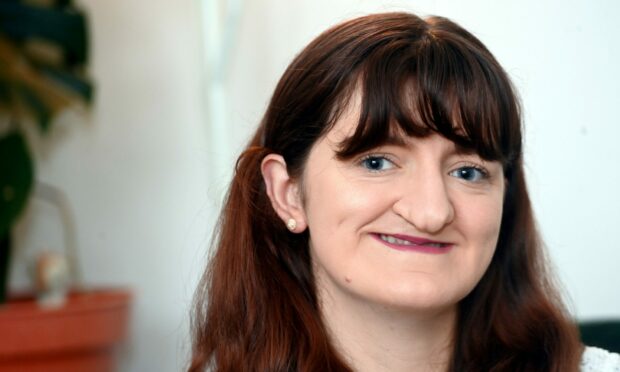

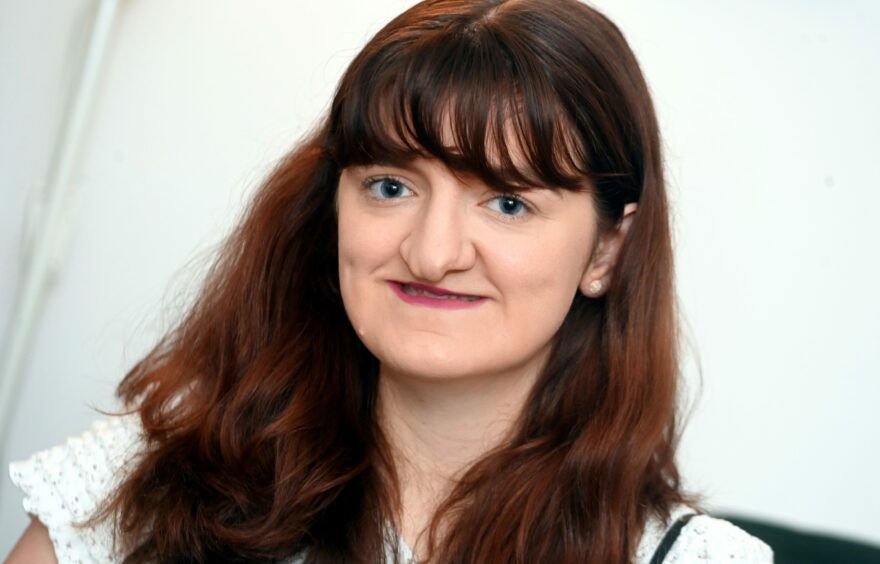
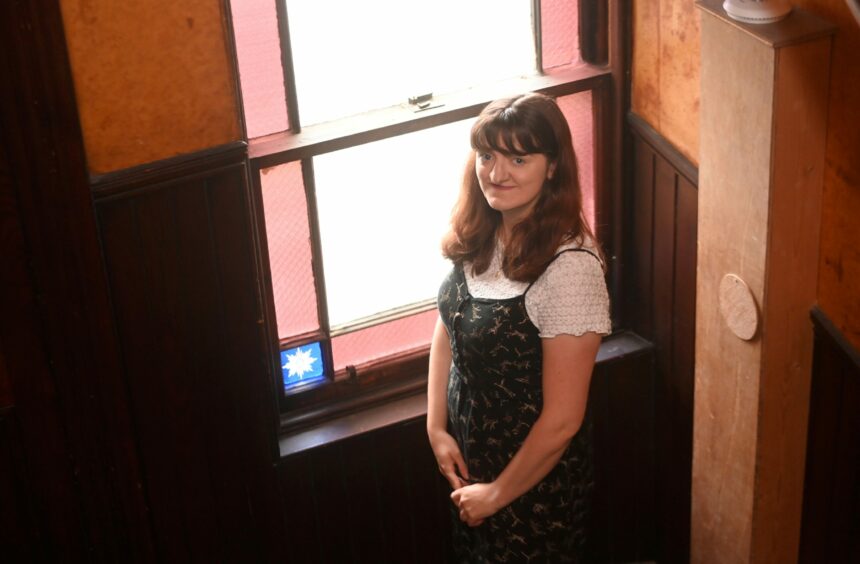
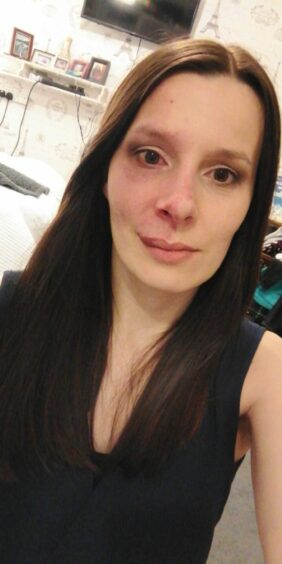
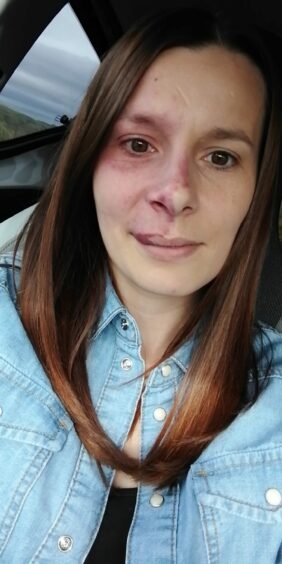
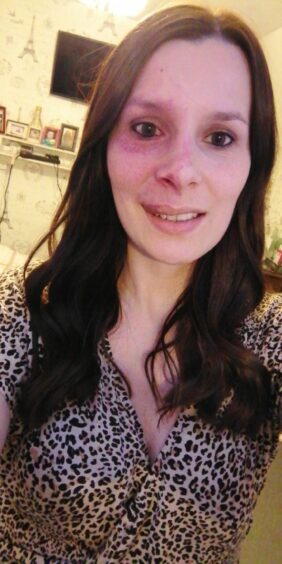
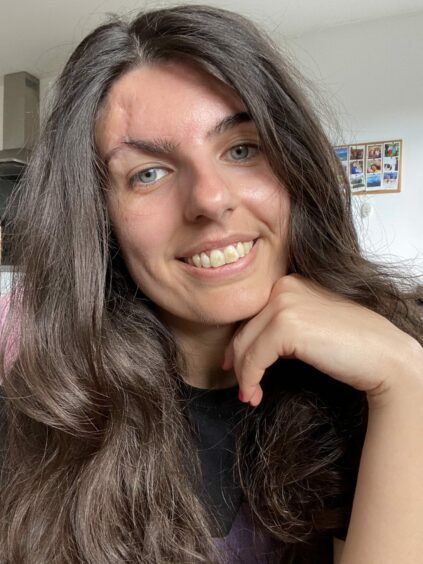
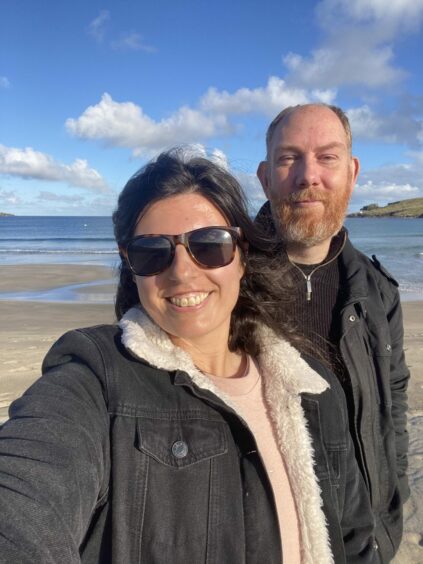
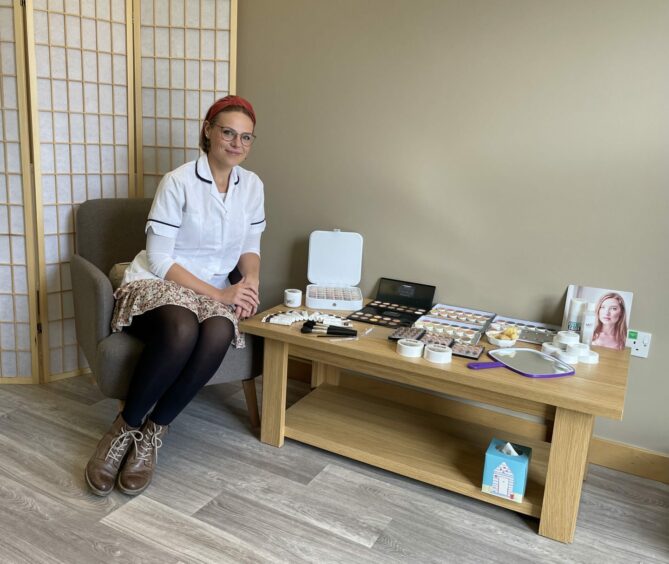
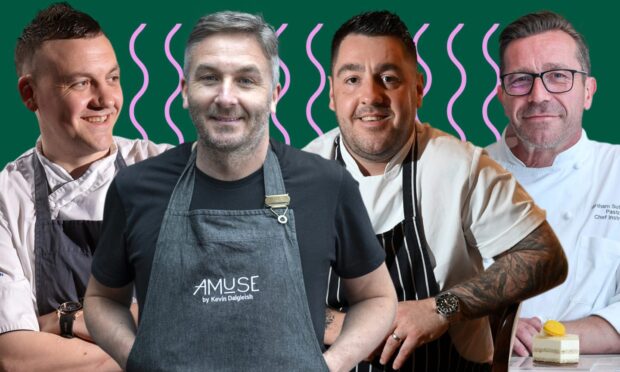
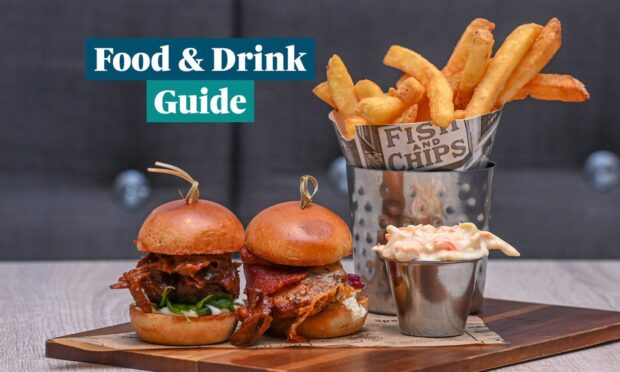
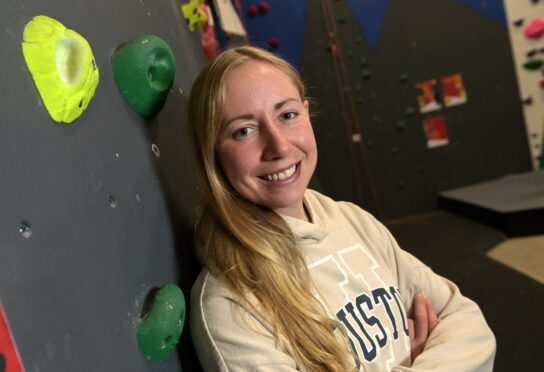
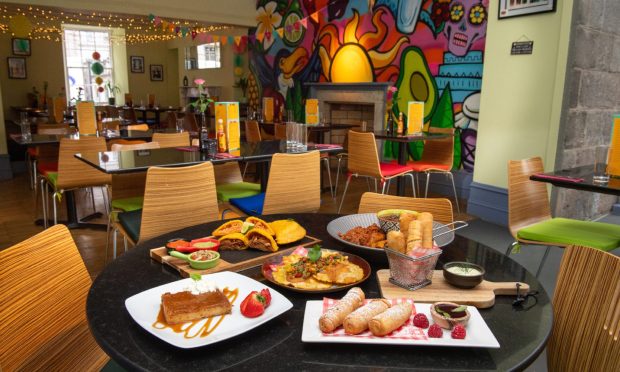
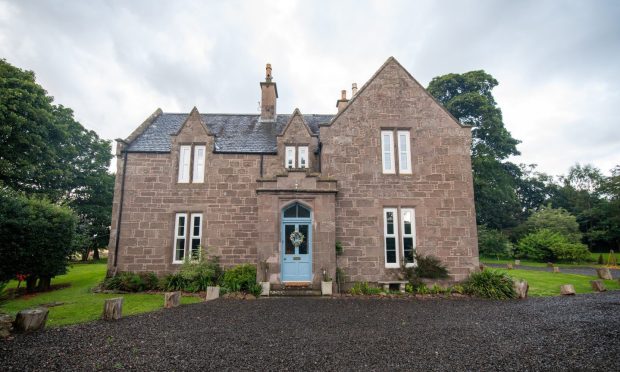
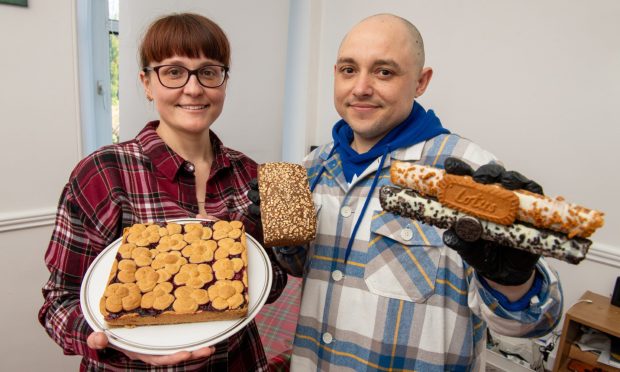

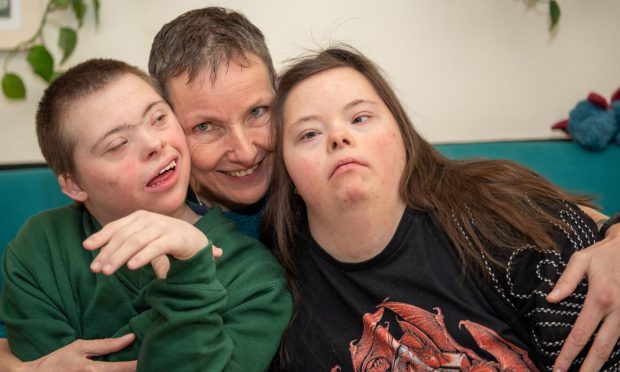

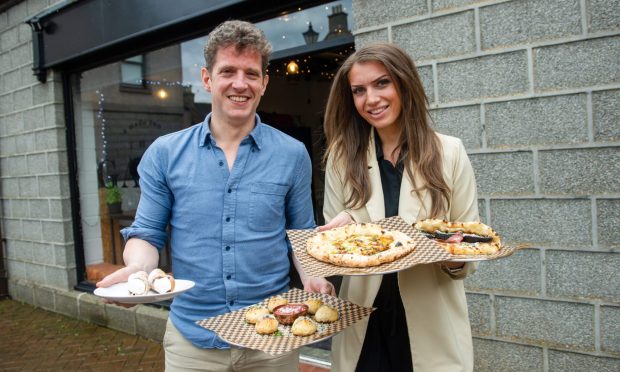
Conversation